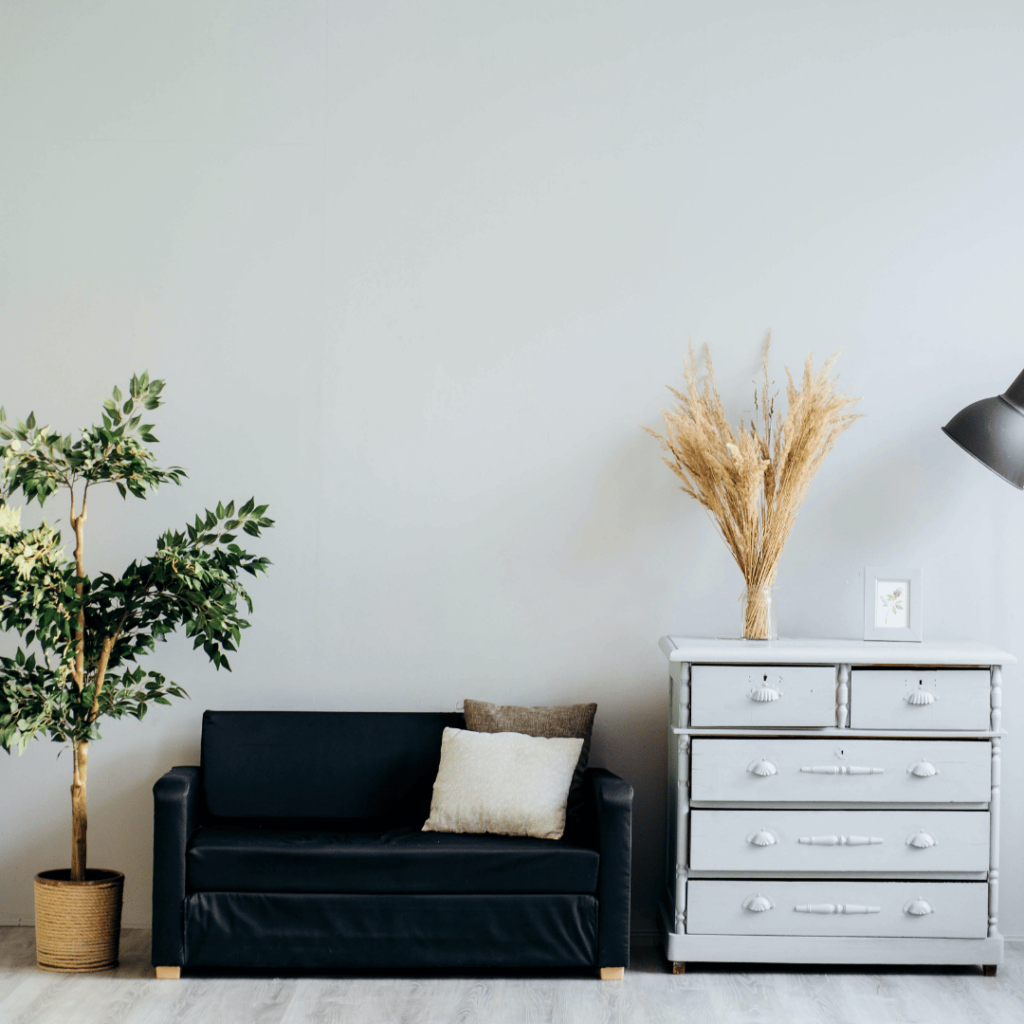Welcome to the realm of dreamy slumber! We all know how incredible it feels to wake up after a restful night’s sleep energized, refreshed, and ready to conquer the day.
But what if your bedroom isn’t exactly conducive to peaceful shuteye? Fear not, sleepyhead! In this blog post, we’ll explore the secrets of creating a sleep-friendly environment that will have you drifting off into dreamland faster than counting sheep.
We’ve got you covered, from decluttering and organizing your space to choosing the perfect mattress and bedding. So grab your coziest blanket and get ready for some sweet dreams ahead!
The importance of a good night’s sleep
Ah, the blissful embrace of a good night’s sleep. It’s not just about feeling well-rested; it is crucial to our health and well-being. When we slumber soundly, our bodies undergo essential processes that help repair and rejuvenate us.
During those magical hours of shuteye, our brains are complex at work, consolidating memories and processing information from the day. Quality sleep can enhance cognitive function, improve concentration, and boost creativity.
But it doesn’t stop there sleep also plays a vital role in maintaining a healthy immune system. While we sleep away, our bodies produce infection-fighting antibodies that help fend off illness and keep us feeling strong.
Did you know that a consistent lack of sleep has been linked to an increased risk of developing chronic conditions such as obesity, diabetes, and heart disease? That’s right – skimping on shuteye can wreak havoc on your body over time.
So, let’s not underestimate the power of a solid slumber! Prioritizing restful nights ensures that we wake up ready to seize the day with renewed energy and vitality. After all, who wouldn’t want to feel their best every morning?
Factors that affect sleep quality
Factors That Affect Sleep Quality
Various factors can significantly impact the quality of our sleep. Addressing these factors is essential to create a sleep-friendly environment and ensure a good night’s rest.

How Can We Improve Sleep Quality Naturally?
One major factor is the temperature of your bedroom. Your body naturally cools down as you sleep, so it’s essential to maintain a relaxed and comfortable temperature in your sleeping space. This means keeping the room well-ventilated or using a fan or air conditioner.
Another crucial factor is noise. Loud noises can disrupt your sleep, leaving you tired and groggy the next day. Consider using earplugs, white noise machines, or even closing windows to block out disruptive sounds.
Lighting also significantly affects our ability to fall asleep and stay asleep. Avoid bright lights before bedtime and consider investing in blackout curtains or blinds to keep your bedroom dark during nighttime.
The comfort level of your mattress and bedding is another critical factor for good quality sleep. A worn-out mattress that no longer provides proper support can lead to discomfort and restless nights. Invest in a high-quality mattress that suits your needs, along with comfortable pillows, sheets, and blankets.
In addition to these external factors, it’s essential to address internal ones. Stress, anxiety, caffeine intake, and alcohol consumption can negatively affect our ability to get restful sleep. Find healthy ways to manage stress throughout the day, such as exercise or relaxation techniques like deep breathing or meditation.
By taking into account these factors that affect sleep quality, you’ll create an environment conducive to optimal restorative slumber every night.
Decluttering and organizing your bedroom
Decluttering and organizing your bedroom is crucial in creating a sleep-friendly environment. When our physical space is cluttered, it can lead to a cluttered mind, making it difficult to relax and unwind before bed.
Start by tackling one area at a time. Begin with your nightstand, clearing away any unnecessary items or papers that may have accumulated over time. Consider investing in drawer dividers or storage containers to keep things neat.
Next, move on to your closet. Take the time to go through your clothing and donate or discard anything you no longer wear or need. Organize your remaining clothes by category, such as shirts, pants, dresses, etc., for easy access.
Clearing out the excess not only creates more physical space but also helps create a sense of calmness in the room. Remove any items unrelated to sleep from the bedroom, including work materials, exercise equipment, or even electronics, if possible.
Creating designated spaces for everything can make bedtime routines more efficient and less stressful. Use hooks or hangers for coats and bags near the room’s entrance rather than allowing them to pile up on chairs or surfaces.

Total-Body Fitness: 10 Effective Resistance Band Exercises
Investing in storage solutions like baskets or bins can help corral loose items like shoes or accessories while keeping them easily accessible when needed.
By decluttering and organizing your bedroom regularly, you’re setting yourself up for success when getting quality sleep each night. A clean and organized space promotes relaxation and tranquility – precisely what you need for a restful slumber!
Remember that everyone’s organizational needs differ – find the best systems for you. Experiment with other methods until you find what brings order into your physical surroundings and your mind.
Incorporate these tips into your routine gradually so that maintaining an organized bedroom becomes second nature. Your future self will thank you when they crawl into bed each night, surrounded by a serene and clutter-free environment.
Choosing the right mattress and bedding
Choosing the right mattress and bedding is crucial when creating a sleep-friendly environment. Your bed should be a sanctuary to rest and rejuvenate after a long day. Here are some tips for selecting the perfect mattress and bedding for your bedroom.
Consider the firmness of the mattress. Different people have different preferences when it comes to how soft or firm they like their beds. Finding one that provides adequate support for your body while being comfortable is essential.
Next, think about the material of your mattress and bedding. Various options, such as memory foam, latex, or traditional innerspring mattresses, are available. Each has its unique benefits and drawbacks, so research carefully before deciding.
Additionally, pay attention to the quality of your bedding materials. Opt for high-quality sheets that feel soft against your skin and promote airflow to keep you cool throughout the night.
Allergens are another important consideration. Select hypoallergenic materials that ward against dust mites and other frequent triggers if you have asthma or allergies.
Remember pillows! Find ones that provide proper neck alignment and support for added comfort during sleep.
Controlling noise and light in the bedroom
Establishing a sleep-friendly atmosphere in the bedroom requires careful control over light and noise levels. It may be quite difficult to fall asleep and remain asleep during the night when there is unwanted noise around. In a similar vein, too much light may disrupt your body’s normal circadian rhythm.
Use earplugs or buy white noise generators, which provide calming noises like rainfall or ocean waves, to reduce noise in your bedroom. Also, use soundproof curtains or heavy blankets to dampen outside noises.
When controlling light, opt for blackout curtains or blinds that block out sunlight effectively. If you prefer natural light during the day, consider installing sheer curtains that let in diffused light without compromising privacy.

It’s also essential to reduce artificial sources of light at nighttime. Dimming the lights before bed signals your brain that it’s time to wind down and prepares your body for sleep.
Controlling noise and light in your bedroom creates an environment conducive to restful sleep. This allows you to fall asleep faster, experience fewer disruptions during the night, and wake up feeling refreshed and rejuvenated each morning.
Incorporating relaxation techniques into your bedtime routine
To make your bedroom a sleep-friendly space, it’s essential to incorporate relaxing techniques into your nighttime routine. When it comes to relaxing and getting ready for sleep, finding activities that encourage relaxation can make a huge impact.
One effective technique is practicing deep breathing exercises. This involves taking slow, deep breaths through your nose and then exhaling slowly through your mouth. Focusing on your breath helps calm the mind and relaxes tense muscles, making it easier to drift off to sleep.
Another helpful technique is engaging in calming activities before bed. This could include reading a book, listening to soft music, or even taking a warm bath. These activities help signal your brain that it’s time to unwind and prepare for restful slumber.

Creating a peaceful ambiance in your bedroom is also essential for promoting relaxation. Consider using dim lighting or candles instead of bright overhead lights and incorporating soothing scents like lavender or chamomile through aromatherapy diffusers or sprays.
Implementing mindfulness or meditation practices can be beneficial for reducing stress levels before bed. Taking just a few minutes each night to sit quietly and focus on the present moment can quiet racing thoughts and help you let go of any worries from the day.
Your nighttime routine will benefit from the inclusion of these relaxing methods, which will help you get higher-quality sleep. Consistency is crucial, so make an effort to create a routine that allows your body and mind to become used to shutting down at the same time every night.
The benefits of creating a sleep-friendly environment
Creating a sleep-friendly environment in your bedroom can benefit your overall well-being. When you prioritize quality sleep, you set yourself up for success in all other areas of life.
One significant benefit of a sleep-friendly environment is improved cognitive function. When you consistently get enough restful sleep, your brain has the opportunity to recharge and rejuvenate. This leads to better focus, concentration, and problem-solving abilities during the day.
Another advantage is enhanced mood stability. Sleep deficiencies are often linked to increased irritability, anxiety, and depression.
Creating an atmosphere that promotes relaxation and tranquility in your bedroom can help regulate emotions and promote a more positive mindset.
A sleep-friendly environment also supports physical health. Quality sleep is essential for proper immune system functioning, hormone regulation, and muscle recovery.
By optimizing your bedroom for good sleep hygiene including factors such as temperature control and comfortable bedding you give your body the best chance at maintaining optimal health.
Last but certainly not least (!), creating a peaceful space dedicated solely to rest can improve overall stress levels by providing an escape from the demands of daily life.
A clutter-free room with dim lighting sets the stage for relaxation before bed, allowing you to unwind fully before drifting off into dreamland.

In summary (without concluding!), crafting a sleep-friendly environment yields far-reaching benefits beyond just feeling well-rested each morning. From mental clarity to emotional balance to physical vitality – prioritizing good-quality slumber pays dividends in all aspects of life!
Conclusion
Creating a sleep friendly environment in your bedroom is crucial for getting the quality rest you need. You can create an atmosphere that promotes deep, restorative sleep by taking steps to declutter and organize your space, choosing the right mattress and bedding, controlling noise and light, and incorporating relaxation techniques into your bedtime routine.
Nighttime relaxation and winding down might be impeded by a messy and disorderly bedroom. Take the time to tidy up your space, putting away any items that don’t belong or are causing visual distractions. Keeping a clean and organized room can help clear your mind before bed.
The type of mattress and bedding you choose also significantly create an ideal sleep environment. Find a bed that supports your body correctly while still being comfortable. Additionally, select bedding made from breathable materials that regulate temperature effectively.
Controlling noise levels in your bedroom is essential for uninterrupted sleep. Consider using earplugs or installing soundproof curtains if outside noises keep you awake at night. Creating a quiet ambiance will contribute to better overall sleep quality.
Lighting is another crucial component to take into account. Overexposure to light before to bedtime may interfere with our circadian rhythm, which controls our sleep-wake cycle. Opt for blackout curtains or blinds blocking external light sources such as street lamps or early morning sunlight. You can also minimize artificial light from electronic devices by turning off screens an hour before bedtime.
Incorporating relaxation techniques into your bedtime routine can signal your body that it’s time to wind down for the day. Try activities like reading a book, practicing gentle stretching exercises, or engaging in calming hobbies such as painting or knitting.

By creating a sleep-friendly environment in your bedroom through decluttering, selecting suitable bedding and mattresses, and controlling noise levels & lighting conditions while incorporating relaxation techniques into your evening routine; you’ll be setting yourself up for optimal restful nights’ sleep consistently!
So, take the time to create a space that promotes relaxation and comfort. Your




2 thoughts on “How Can I Create a Sleep-Friendly Environment In My Bedroom?”